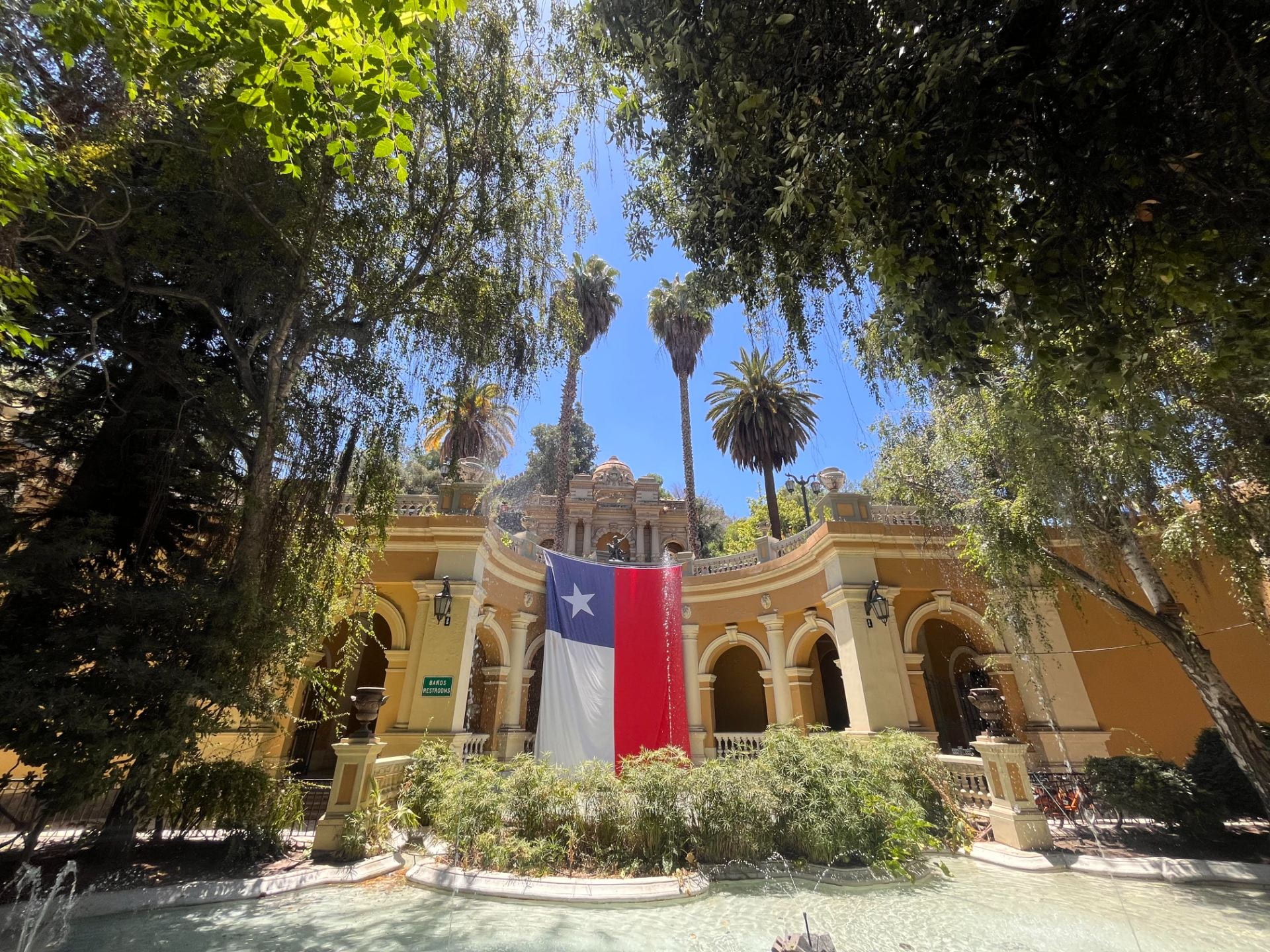
Hola from Santiago! This week has been jam-packed with lectures, field observations, a workshop, and a welcome ceremony at the New Zealand Embassy as we settle into our new home.
Highlights
Thursday: We attended a captivating lecture on clinical strategies for promoting breastfeeding. We discussed the benefits and the importance of an intersectional approach to promote and protect breastfeeding in a Chilean context. Following this, we attended a lecture on healthcare for people with chronic conditions. In this lecture, we identified how health systems can inadequately support individuals with chronic illnesses and discussed changes at the micro and macro levels to support people with chronic diseases. We completed our day with a workshop focused on effectively presenting ourselves via an elevator pitch.
Friday: Today, we went on a field trip and visited the Museo Chileno de Arte Precolombino (Pre-Columbian Art Museum). I felt incredibly grateful for the opportunity to learn about the first humans that arrived in the land now referred to as Chile in the “Chile Before Chile” exhibition. I reflected upon the ethical considerations involved in the retention, restitution, and repatriation of cultural artefacts/ objects. Moreover, I felt it necessary to reflect upon what decolonisation means in the contexts of museums, whose voice/ narrative is prioritised, and how cultural objects are acquired.
Saturday and Sunday: During the weekend, we explored Cerro Santa Lucía (Santa Lucía Hill), called Huelén in Mapudungún (Mapuche language). The peaceful nature of the park and panoramic views of Santiago felt like an escape from the hustle and bustle of the city.
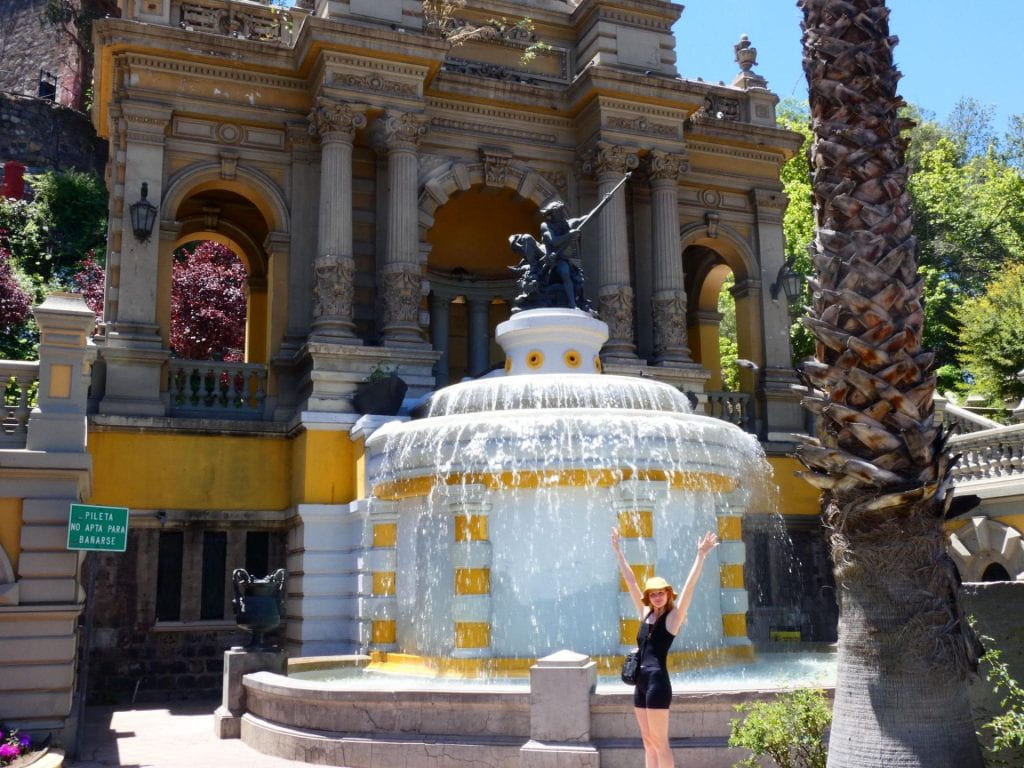
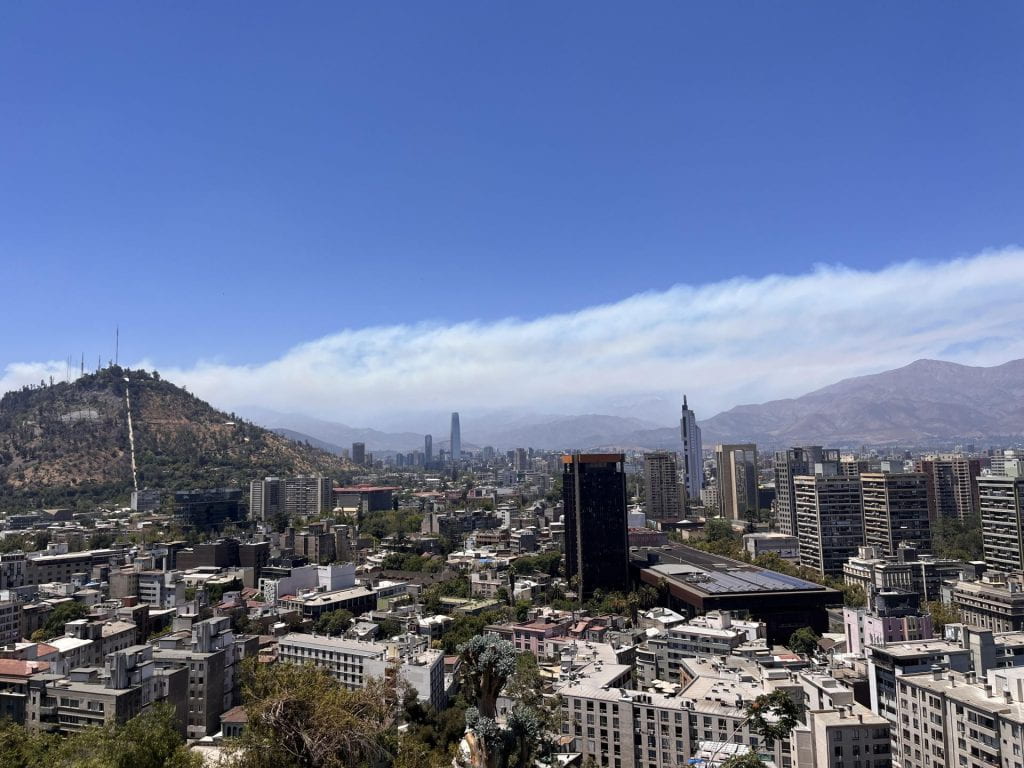
Monday: We began our second week in Santiago with a class focused on One Health approach to public health. A One Health approach highlights the integrated and interdependent nature of the health of people, animals, and ecosystems. I felt particularly connected to this topic as my Science Scholars programme at the University of Auckland was focused on interdisciplinarity and collaboration, key facets of effective problem-solving in public health. After this, we visited Huerto San Francisco, a shared garden space on the San Joaquín campus that aims to promote, educate, and generate discussions in the community about sustainability. I believe that food connects us through shared experiences. I am grateful to have tried Passiflora caerulea growing in the garden and learned about Chilean medicinal plants.
Tuesday: Today, we visited Centro Médico Santa Lucía (private system) for our first field observation. We observed a behind-the-scenes tour of the hospital, which was incredibly insightful. We were introduced to the five main pillars of the hospital: water, electricity, climate (including oxygen), elevators, and the clinical aspect. It was a unique experience to see and understand the importance of these pillars and how to maintain these systems (e.g., with generators and oxygen cylinders) when faced with challenges such as a power outage or natural disaster. I had only ever been to the hospital as a patient, so it was strange to be on the opposite side. The visit was very insightful and a tad overwhelming as we observed patients undergoing surgeries. I felt overwhelmed observing patients in a vulnerable position because of their illnesses and being in a position where I was unable to help. Overall, the experience highlighted the complexity of keeping a hospital functioning to ensure that every person receives high-quality medical care.
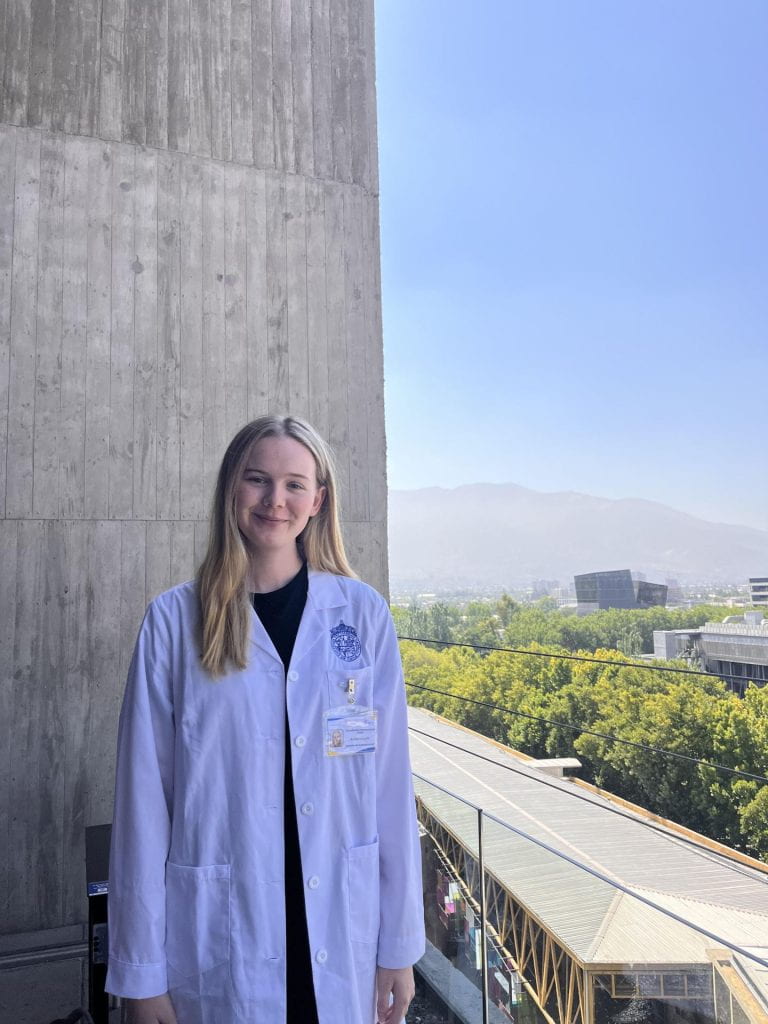
Wednesday: Mid-way through our second week, we engaged in a global leadership workshop focused on strategies for success. I walked away from this immersive workshop with a greater understanding of the importance of connecting with empathy and emotional intelligence. Following this, we visited the New Zealand Embassy for a welcoming ceremony. I really enjoyed meeting and connecting with fellow Kiwis in Chile. I felt like the embassy was my home away from New Zealand.
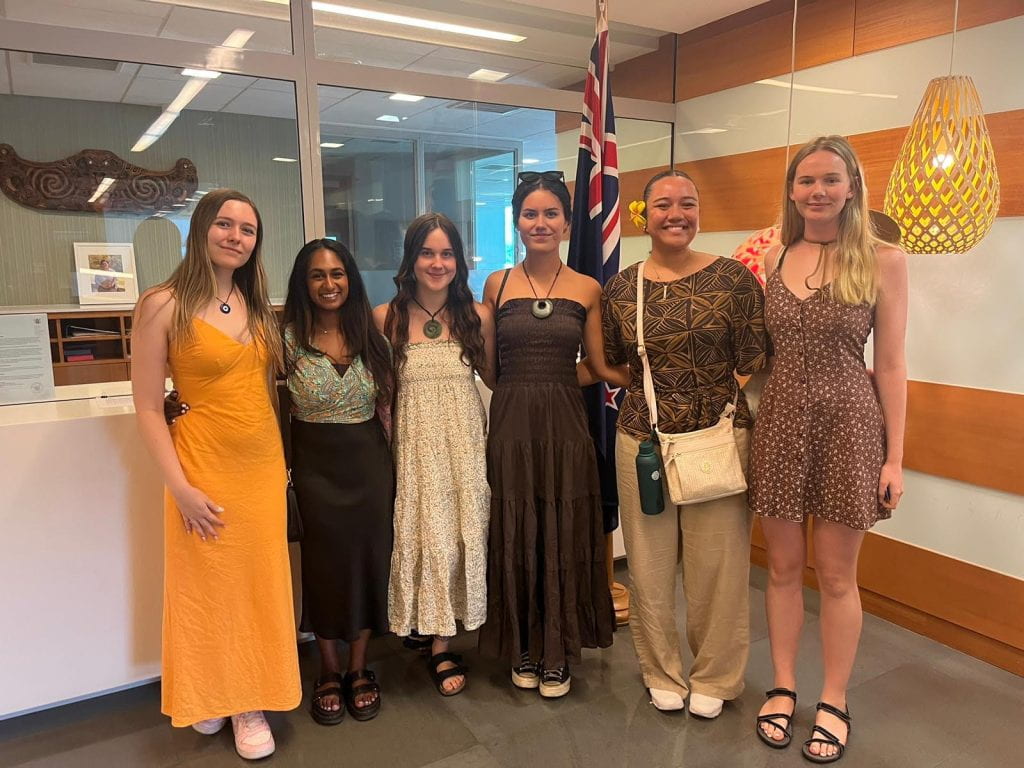
Thursday: Today presented an alternative experience to Tuesday’s field observation as we stepped into a public hospital at Centro Médico San Joaquín. Chile has a dual healthcare system with private (ISAPRE) and public healthcare (FONASA). It was interesting to draw parallels and differences between the private and public hospitals.
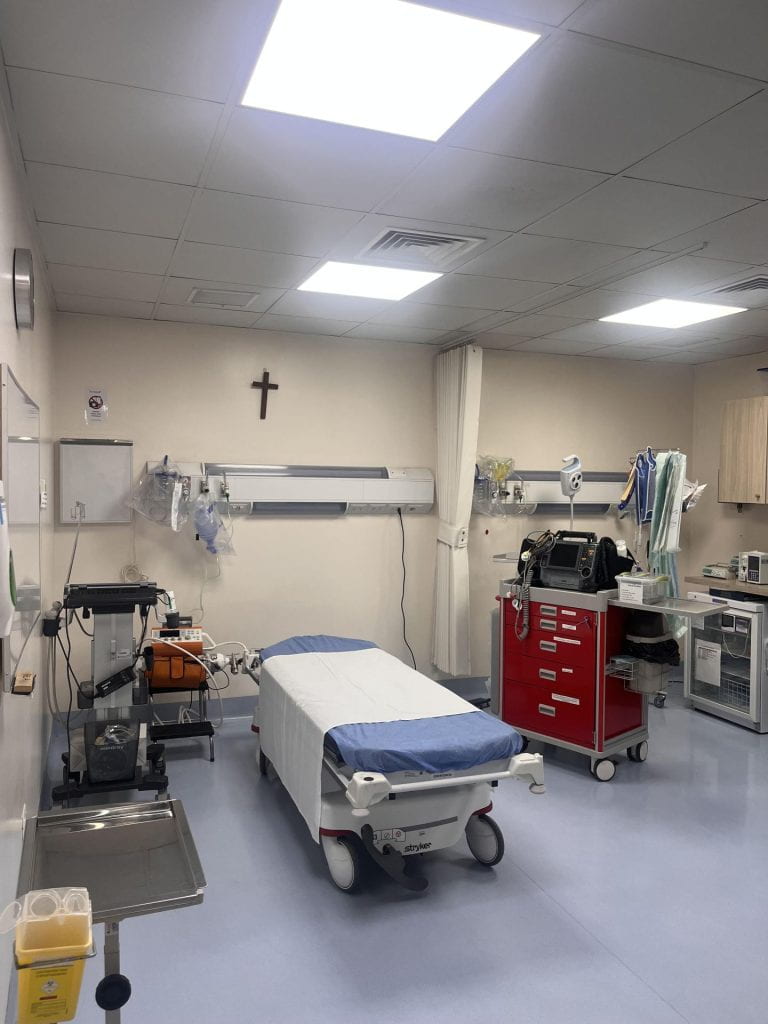
Reflections
Collaboration: This week provided opportunities to collaborate with students from Beijing, Singapore, the USA, Switzerland, and South Korea in lectures, workshops, and field observations. I have made new friends, intercultural partnerships, and networks. Exchanging our experiences and perspectives has broadened my understanding as I interweave new ideas into my worldview.
Challenges: This week presented new challenges as I settled into Santiago and engaged in new immersive experiences. One challenge I experienced was feeling overwhelmed in the clinical immersive settings. I addressed this by acknowledging my feelings and talking with my friends and mentors about my experiences. A second challenge I experienced was a sense of disconnection from my home, friends and family. Visiting the embassy and meeting locals on the metro or in restaurants and feeling their genuine kindness helped me feel less homesick.
Reflecting on these past two weeks in Santiago, I am immensely grateful. Thank you for following me along on this incredible journey; I am excited to continue sharing my adventures with you guys.